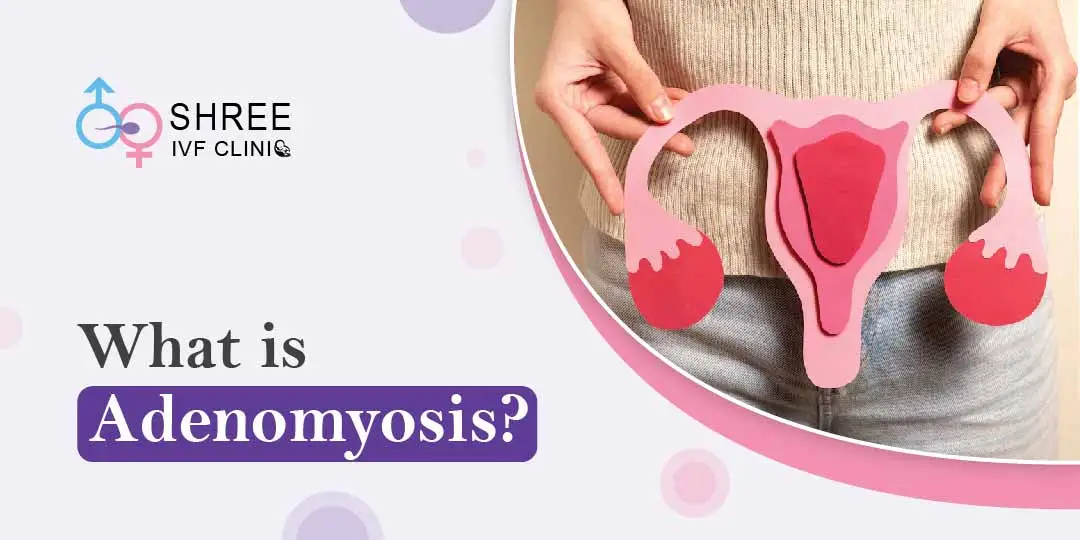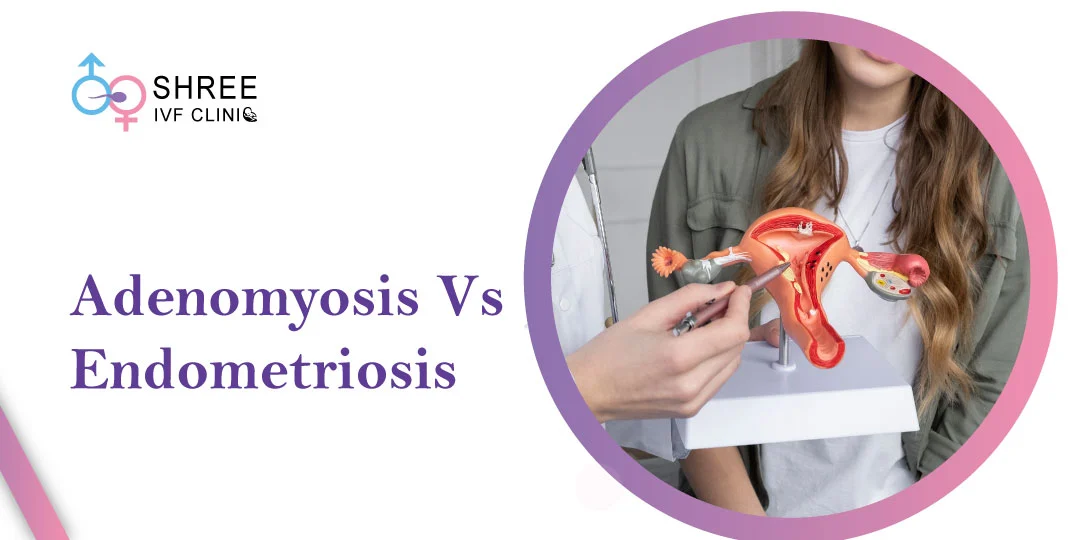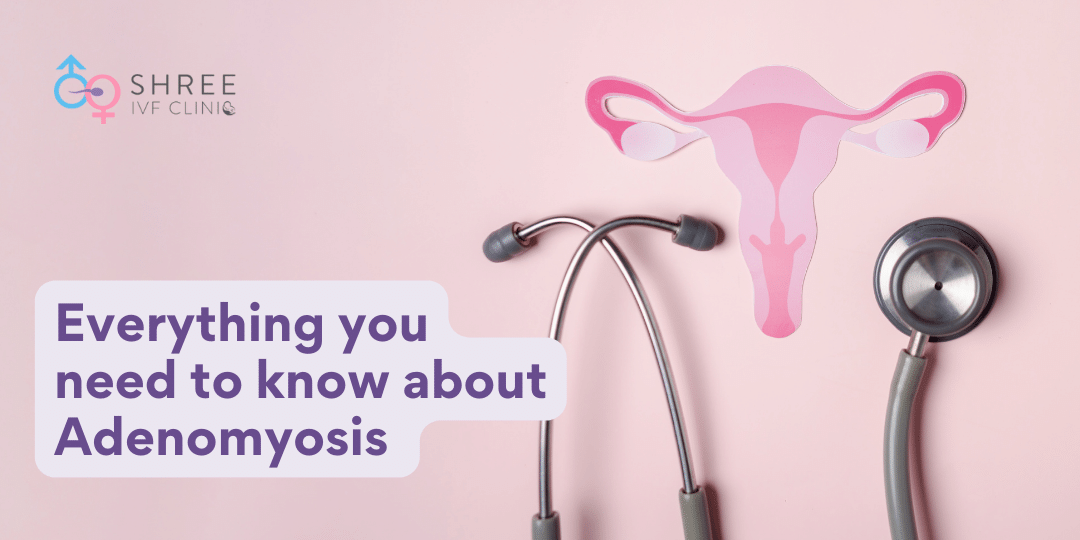What is the meaning of Adenomyosis?
UPDATED ON 19 JAN. 2023

AUTHOR
Dr Jay Mehta
Scientific Director & IVF Specialist with 10+ years of experience
CONDITION
GET IN TOUCH ON
As a gynecologist, I see many couples come into my clinic with questions about adenomyosis; and for good reason. This condition can have profound effects on women’s bodies, sometimes causing chronic pain and heavy menstruation that can interfere with everyday life.
In order to understand how best to treat this condition I think it is important for couples and those managing it to be aware of the symptoms, causes, diagnosis, treatments options as well as other related considerations associated with living with adenomyosis.
In this blog post, I will touch upon all these topics so you can better understand what options are available when facing this particular condition.
Watch this video to know, How to identify You have Adenomyosis in Uterus
Anatomy of Adenomyosis in Detail
The cause of this condition is not fully understood but it is thought to be related to hormone imbalances or direct trauma to the uterine wall.
The growths associated with adenomyosis can also lead to cysts and scar tissue that can further interfere with fertility. As such, it is important for couples seeking pregnancy to discuss any potential treatments with their gynecologist prior to conception.
Diagnosing Adenomyosis
The only way to definitively diagnose adenomyosis is through an MRI or ultrasound scan.
However, there are other methods that can be used to help identify possible signs and symptoms associated with this condition, such as pelvic exams and blood tests.
Additionally, doctors may take a patient’s medical history into consideration when making a diagnosis.
Treatment Options for Adenomyosis
Hormonal therapies work by suppressing the hormones that trigger the growth of the endometrium into the myometrium. Medication can also be used to reduce inflammation and pain associated with adenomyosis.
Surgery is usually only recommended in cases where other treatments have not worked or when severe symptoms are present.
It is important to discuss all available treatment options with your doctor before making any decisions about how best to manage this condition.
Also Read : What Is the Best Treatment for Adenomyosis?

4,790+
379K+
” Every individual and couple’s journey is unique, and
finding the right solutions tailored to their specific
circumstances can make all the difference “
Living With Adenomyosis
Once diagnosed, there are steps you can take in order to manage your adenomyosis and reduce the severity of associated symptoms.
This includes following all recommended treatments, such as hormones and lifestyle changes, as well as dietary modifications. Additionally, taking time to rest and relax can help reduce stress levels which can also trigger flare-ups.
Living with adenomyosis is not easy but it is possible to find ways to manage your condition and live a fulfilling life. It is important to understand that you are not alone in this journey; there are support groups available both online and offline where you can connect with others going through similar experiences.
In summary, adenomyosis is a condition which affects many women worldwide. It can cause serious symptoms such as heavy bleeding, cramping and pelvic pain that can interfere with everyday life.
It is important to be aware of all the symptoms, causes and treatment options associated with this condition so you can best manage it. With proper diagnosis and treatments, it is possible to reduce the severity of symptoms and live a full life.
If you suspect that you may have adenomyosis, please contact your gynecologist for further advice.
I hope this blog post has helped to better inform you about adenomyosis so that you can make informed decisions about how best to treat this condition.
AUTHOR
Dr Jay Mehta
Scientific Director & IVF Specialist with 10+ years of experience
CONDITION
CALL US 24/7 FOR ANY HELP
GET IN TOUCH ON
Share Article on
Recommended Reading
Is Adenomyosis of Uterus Benign or Malignant?
Adenomyosis is a benign condition that causes pain and heavy periods, but it’s not cancerous and won’t turn into cancer
Difference Between Adenomyosis and Endometriosis
Endometriosis causes tissue to grow outside the uterus, while adenomyosis leads to growth within the uterine muscle
What Causes Adenomyosis? Guide to Causes, Diagnosis & Treatments Available
Demystifing Adenomyosis, providing an in-depth overview of its causes, diagnosis, and treatment options through this article. learn more.




